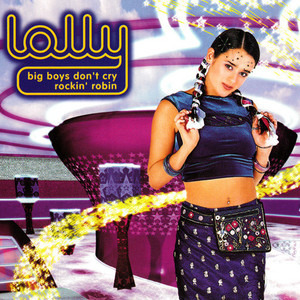Released: 13th November 2000
Writers: Diane Warren
Peak position: #1
Chart run: 1-2-3-5-6-7-8-11-15-19-26-31-37-43-61-64-74
Billboard Hot 100 chart run: 82-71-79-83-96-99-78-78-83-79-77-76-79-81-88-85-86-79-87-93 // 97-85-78-57-49-48-46-43-30-19-16-14-11-11-14-17-14-18-19-24-30-36
Imagine, for a moment; you’ve just been handed Coyote Ugly to promote and distribute. You can see the potential: it’s a movie with a smoking hot cast, and the plot revolves around a saloon where the female bartenders dance on the bar and occasionally dowse each other in water while harbouring ambitions to be credible singer-songwriters. Oh, and Adam Garcia is also in it. So, you’ve covered all your core teen demographics: the girls, the guys and the gays. But a potent teen movie needs a killer song; luckily there are plenty of teen-pop singers available whose material was built on thinly-veiled suggestiveness. But instead, you pick…LeAnn Rimes.

Pop fans are, of course, no strangers to reinvention. And indeed, during the first few years of the ‘00s, we would be seeing a lot of female acts grapple with the challenge of shedding their cutesy teen pop personas to be taken seriously (we always took them seriously, but further validation was needed). But LeAnn Rimes was the real trailblazer in this area. Her dramatic – and successful – transformation on Can’t Fight The Moonlight arguably made it possible for many ‘90s pop acts even to attempt the same feat. Or, perhaps more importantly, for record labels to consider it a worthwhile investment. The ripple of surprise that emanated from the decision to attach a wholesome LeAnn Rimes to a cool, titillating movie like Coyote Ugly starts to make sense when you look more closely at it. She provided the singing voice of Violet, the main character (played by Piper Perabo); albeit she adopted a softer, more neutral tone so that the character didn’t suddenly burst into song and sound like LeAnn Rimes. As for Can’t Fight The Moonlight; it was penned by none other than Diane Warren, a versatile songwriter who had written – among other things – How Do I Live. Undoubtedly the success of LeAnn Rimes’ record-breaking hit wouldn’t have been far from anyone’s mind when the pair were commissioned to join the soundtrack of the movie.

Immediately it becomes evident that the pair are not about to wander down the same path again. With a snarl of electric guitar, Can’t Fight The Moonlight immediately sets a mood. The beat is positively Cheiron-esque, but there’s a more sensual tone overall. The song never loses itself; it stays grounded and retains a seductive closeness that is consistent throughout. That’s not for want of trying though, because the production absolutely could go down a more bombastic route. The core differential here is LeAnn Rimes; she’s joining the pop party but doing so on her terms, and her unquestionable talent gives Can’t Fight The Moonlight space to breathe. You never sense that she’s being pushed to her limits by the song; instead, she has the time to get under the skin of the melody and almost use it as an opportunity to explore how her voice sounds as a pop artisté
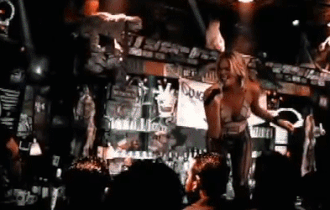
That said, this is an enormous song, make no mistake. It is stuffed with hooks, but it goes for the slow-burn, with each successive element building slightly on the last and continually keeping the song tantalisingly close to the edge of its seat. As early as the first pre-chorus, you start to get a sense of how special Can’t Fight The Moonlight is, with a lyric that is incredibly pretty while delivering a killer hook: “Underneath the starlight, starlight, there’s a magical feeling, so right”. The chord progression combined with the quality of LeAnn Rimes’ voice creates a moment that feels immediately timeless. As indeed, does the chorus. There’s slight darkness to the lyrics: “Deep in the dark, you’ll surrender your heart, but you know, but you know that you…can’t fight the moonlight”, and it’s a superb production, with synth stabs and growling electric guitar riffs providing accentuated punches.
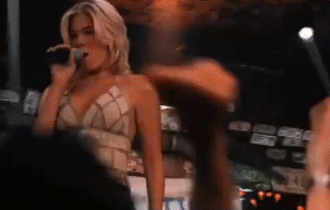
At around the mid-point, Can’t Fight The Moonlight switches things up a little bit; the ad-libs become a bit more stylised (“No-woah-yeah”) and are joined by subtle distorted background vocals (“No matter what you do”); this very much sounds like LeAnn Rimes doing her best Britney Spears impression, and it’s really rather exciting. The breakdown consists of barely intelligible mumbling: “Na-na, nuh-uh-la; na-na no-lo-hi; don’t try yo-o-o-u’re ne’er gunna wi-ho-o-o-yeah” before dramatically returning to the pre-chorus hook, now significantly heightened with a key-change slipped in for good measure. The climax of the song is achingly good, as LeAnn Rimes finally gets to let rip; so seismic are the: “Don’tCHA KNO-O-OW that you can’t…” and: “Surrender your HE-A-A-A-ART” ad-libs that they blew a hole in the fabric of ‘00s pop music.

The music video for Can’t Fight The Moonlight is oddly successful for something that consists of little more than the finale of the movie (spoiler: LeAnn Rimes performs the song in the Coyote Ugly saloon). It’s quite spoiler-heavy; the video includes additional footage that more or less presents an abridged version of the whole movie. Even if it doesn’t include some of the finer plot-points, it most certainly – and quite ironically – ruins the biggest surprise. Because, of all the things that happen in Coyote Ugly, 17-year old LeAnn Rimes turning up at the end to sing on the bar and swing around a pole was probably the least predictable aspect. Broadly speaking though, it’s a great piece of synergistic marketing; if you weren’t able to go and see the movie (despite its modest 12
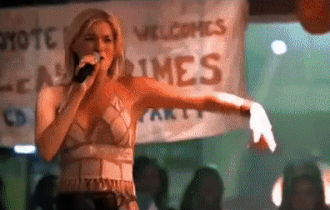
In the UK, Can’t Fight The Moonlight was an immediate hit; the single strode to #1 and reignited interest in LeAnn Rimes to the point where she scored her first (and only) top ten studio album a few months later. It’s relatively unsurprising, for even if her earlier albums had been a little more pop than country, the latter was still a genre closely associated with LeAnn Rimes and not one that had a significant mainstream market in the UK. There was no grey area with Can’t Fight The Moonlight though; this was a pop hit through-and-through. Over in America, the response was initially a little less enthusiastic; the single initially peaked at #71 in 2000, which was at odds with the top ten performance achieved in just about every other territory where the track was released. About a year later though, the Graham Stack Remix started to pick up a significant amount of airplay it and the song re-charted. Eventually, 18 months after Can’t Fight The Moonlight had initially charted, it achieved a peak of #11 on the Billboard Hot 100.
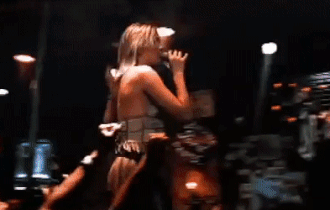
Despite its considerable worldwide success, this single arguably had a more significant impact beyond its commercial performance, more so than it’s given credit for. It set a precedent for country artists to successfully genre-swap from country to pop (although we’d be waiting about 15 years to see it done on the same scale again). Can’t Fight The Moonlight also saw LeAnn Rimes get a head start on the teen pop princesses of the ‘90s and start growing her sound in a way that felt like a natural progression towards adulthood, rather than a calculated move. She may not have been the obvious choice for Coyote Ugly, but there’s no doubt that LeAnn Rimes was the right choice and few could have done it better.



